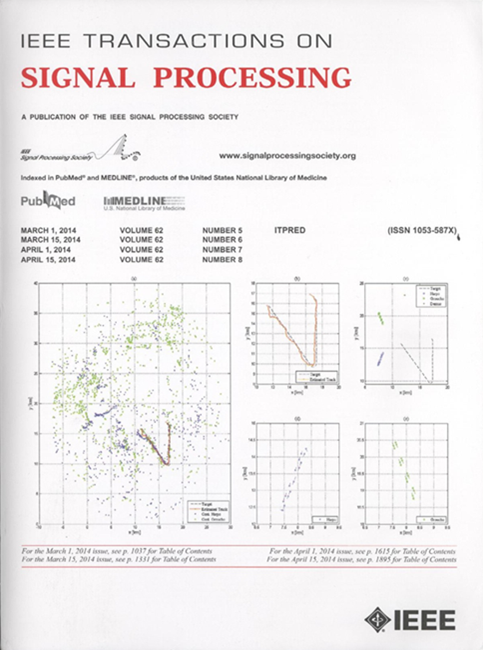结构化张量分解用于FDD海量MIMO下行信道重构
IF 4.6
2区 工程技术
Q1 ENGINEERING, ELECTRICAL & ELECTRONIC
引用次数: 0
摘要
本文章由计算机程序翻译,如有差异,请以英文原文为准。
Structured Tensor Decomposition for FDD Massive MIMO Downlink Channel Reconstruction
The downlink channel reconstruction at the base station holds paramount significance across a multitude of applications in FDD massive MIMO systems. Conventional approaches rely on downlink training and feedback with a considerable overhead. In order to mitigate this issue, we propose a tensor-based framework for downlink channel reconstruction that leverages the partial reciprocity between the uplink and downlink channels. By modeling the uplink channel as a multi-dimensional tensor, we estimate the reciprocal channel parameters via a low-rank tensor decomposition. This approach effectively captures the correlation between arrays, subcarriers, and polarizations of the channel. In addition to the classical tensor decomposition, we exploit the exponential structure of the decomposed antenna and delay steering matrices, and propose a structured tensor decomposition algorithm. The proposed algorithm enhances the exponential structure via a tensor rank-1 constraint by incorporating the Hankel transform. The resulting optimization problem is rendered tractable by introducing a domain conversion matrix to facilitate the mapping of variables between the Hankel transform domain and the original domain. The proposed method exhibits superior noise robustness compared to conventional algebraic closed-form methods based on the Vandermonde constrained tensor decomposition. Experimental results with both simulated data and a Ray-tracing dataset demonstrate the effectiveness and superior downlink reconstruction accuracy of our proposed methods compared with several alternative approaches.
求助全文
通过发布文献求助,成功后即可免费获取论文全文。
去求助
来源期刊

IEEE Transactions on Signal Processing
工程技术-工程:电子与电气
CiteScore
11.20
自引率
9.30%
发文量
310
审稿时长
3.0 months
期刊介绍:
The IEEE Transactions on Signal Processing covers novel theory, algorithms, performance analyses and applications of techniques for the processing, understanding, learning, retrieval, mining, and extraction of information from signals. The term “signal” includes, among others, audio, video, speech, image, communication, geophysical, sonar, radar, medical and musical signals. Examples of topics of interest include, but are not limited to, information processing and the theory and application of filtering, coding, transmitting, estimating, detecting, analyzing, recognizing, synthesizing, recording, and reproducing signals.
 求助内容:
求助内容: 应助结果提醒方式:
应助结果提醒方式:


